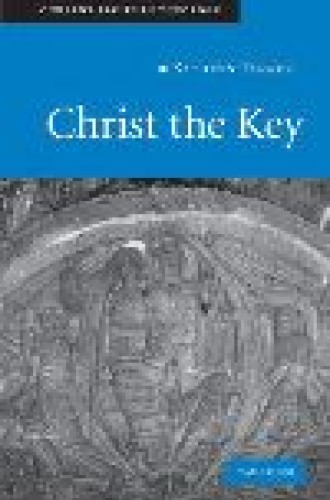Take and read
The 500th anniversary of Calvin’s birth last year prompted the publication of a spate of works celebrating his life and theology. Gordon’s vibrant new biography invites readers to see Calvin’s theological commitments in historical context. Highlighting Calvin’s view of himself as prophet and apostle to his contemporaries, Gordon shows us the complexities of the Reformer’s political theology as he communicated it to a variety of hearers, ranging from exiled and persecuted Christians to French nobles.
This long-awaited magnum opus is an extended theological unfolding of what Kelsey sees as the nonnegotiable Christian convictions about human persons, namely that God actively relates to humans beings in a threefold way: to create them, to draw them to eschatological consummation and to reconcile them when they are alienated from God. Kelsey’s analysis is steeped in scripture and concerned with practical questions of human flourishing, and it reflects deep engagement with the larger contours and debates of Christian theology.
Originally presented as the Warfield Lectures at Princeton Seminary, this book is a sequel to Tanner’s systematic theology, Jesus, Humanity, and the Trinity. Grounded in creative christological appropriations of early church theologians, especially Athanasius, Gregory of Nyssa and Augustine, Christ the Key addresses perennial theological questions such as the relationship between nature and grace. It wades into contemporary debates related to sociopolitical appeals to the Trinity, critiques of classical atonement theories, and the dialogue between science and religion.
In this passionate christological reflection, Goizueta continues to mine the theological riches of popular Catholicism and to explore the confluence of justice and aesthetics. He portrays Jesus Christ as a figure from the borderlands who incarnates the universal truth of God’s love and calls us to practical solidarity with the crucified victims of our world. Centered on the crucified and risen Christ, this is a theological aesthetics “that makes demands on us.”
A former convenor of the Black Catholic Theological Symposium, Copeland uses the defilement and abuse of black women’s bodies during slavery and beyond to set up her ethical orientation. She deftly traces the particularities of the marked body of Jesus of Nazareth and his enfleshment of freedom. In the Eucharist, Christ’s self-gift nourishes, strengthens and orders Christians, absorbing their failures so they can make Jesus’ earthly solidarity with others visible in their own praxis, living as Christ’s body in the world.
Jones notes, “It is hard to feel divine love when your capacity to feel anything at all has been shut down.” In an intriguing set of essays, she introduces the concept of trauma through both exposition and narrative accounts and then offers wide-ranging theological reflections on how the story of faith can be a resource for those wounded by traumatic violence as they seek to feel and know God’s grace.
This is a beautifully written reflection on the loss of faith in the 19th-century West and the prospects for reclaiming it. Part autobiography, part cultural and theological analysis, Lundin’s book draws amply on the words of artists who lived somewhere on the margins of belief, such as Dostoyevsky, Dickinson, Auden and Milosz. His principal theological interlocutors are Bonhoeffer, Barth and Balthasar. Lundin’s analysis is refreshing in expressing gratitude rather than regret for the fact that we live in the modern era.
Westphal’s message is that Athens can be helpful to Jerusalem. In particular, the philosophical hermeneutics of figures like Heidegger, Gadamer and Ricoeur can be helpful to the ongoing Christian enterprise of interpreting scripture. In clear, accessible prose, Westphal orients the reader to major voices in hermeneutical theory, most centrally that of Gadamer. He argues that the relativity and dependence intrinsic to our creaturehood must be acknowledged in all our efforts to interpret scripture, but that this “relativist hermeneutics” does not imply an “anything goes” relativism.
This book is the product of three years of meetings by Jewish, Christian and Muslim scholars to answer the question, “Do our three scriptures unite or divide us?” Embodying the practice of “scriptural reasoning,” the contributors offer searching theological reflections on the prospects for interfaith relations based on their communal readings of scriptural texts, finding both guidance and cautionary examples in medieval scriptural commentary.














